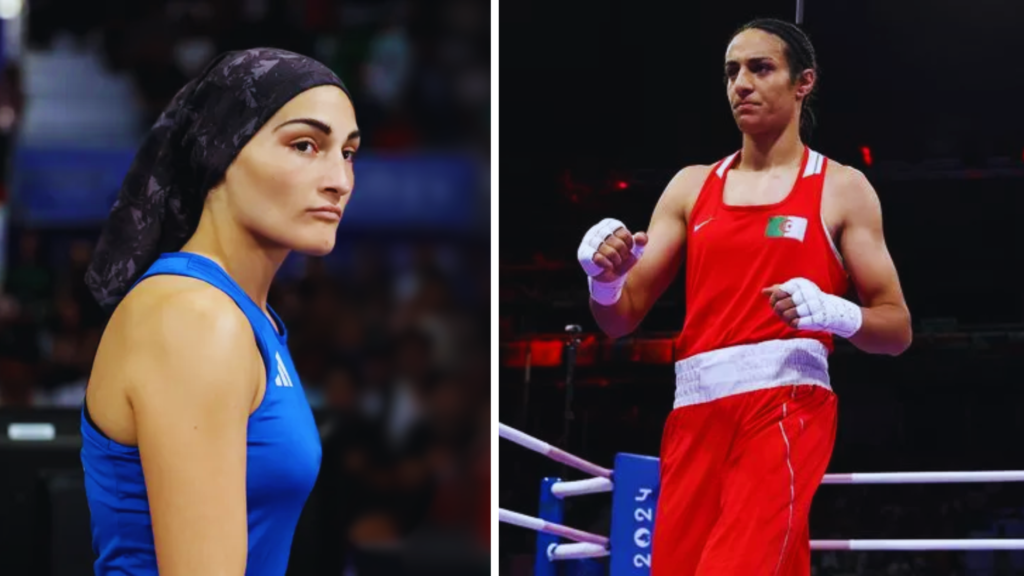
The 25-year-old fighter abandoned her bout against Imane Khelif just 46 seconds in, after taking a heavy punch to the face from the Algerian competitor. Carini was overheard telling her coach, “it’s not fair” and “it hurts like hell” before the fight was called off, and Khelif was declared the winner.
Carini was visibly distraught in the ring and broke tradition by refusing to shake Khelif’s hand after the referee declared Khelif the victor.
Khelif’s participation in the Paris Olympics has been controversial since he was disqualified from the final of the Women’s World Championships last year.
He failed to meet the International Boxing Association (IBA) eligibility rules, which prevent athletes with XY chromosomes from participating in women’s events. However, Khelif has been cleared to compete in the Olympics by the International Olympic Committee (IOC), which has stated it is “saddened by the abuse” Khelif has received.
Angela Carini has since apologized for refusing to shake Khelif’s hand. Speaking to the Italian newspaper Gazzetta dello Sport, Carini said, “All this controversy makes me sad. I’m sorry for my opponent, too. If the IOC said she can fight, I respect that decision.”
She explained her decision not to shake Khelif’s hand was not intentional. “Actually, I want to apologize to her and everyone else. I was angry because my Olympics had gone up in smoke. I don’t have anything against Khelif. If I were to meet him again, I would embrace him.”
Khelif is set to face Hungary’s Anna Luca Hamori in the 66kg women’s boxing quarter-final on Saturday.
After her win against Carini, Khelif briefly declared, “I am here for gold. I’ll fight anyone.”
Rafael Lozano, the last Spanish boxer to win an Olympic medal and the national coach for boxing, has voiced concerns about Khelif’s participation. He stated that his fighters were unable to train with Khelif due to her power. “I don’t see it as fair, I don’t see it as equal.
Everyone can think what they want, but that’s how I see it,” Lozano told Radio Marca. He explained that Khelif’s power made it unsafe for female boxers to train with her, as she injured anyone she sparred with.
In response to the controversy surrounding Khelif and Taiwan’s Lin Yu-ting, who also failed a gender eligibility test with the IBA, the International Olympic Committee (IOC) condemned the treatment directed at the athletes.
“The current aggression against these two athletes is based entirely on this arbitrary decision, which was taken without any proper procedure especially considering that these athletes had been competing in top-level competition for many years,” read a statement from the IOC. “The IOC is saddened by the abuse that the two athletes are currently receiving. Every person has the right to practice sport without discrimination.”
Earlier this week, the IBA criticized the IOC’s decision to allow Khelif and Lin to compete in Paris, arguing that their disqualification was necessary to “protect” women. “We absolutely do not understand why any organization would put a boxer at risk with what could bring a potential serious injury within the ‘Field of Play’ (FOP),” stated the IBA.
“The main role of the referee in the ring is to manage the boxer’s safety at all times. How is this reasonably practicable when a boxer fails to meet the eligibility criteria to compete? The IBA will never support any boxing bouts between the genders, as the organization puts the safety and well-being of our athletes first. We are protecting our women and their rights to compete in the ring against equal rivals, and we will defend and support them in all instances; their hopes and dreams must never be taken away by organizations unwilling to do the right thing under difficult circumstances.”

